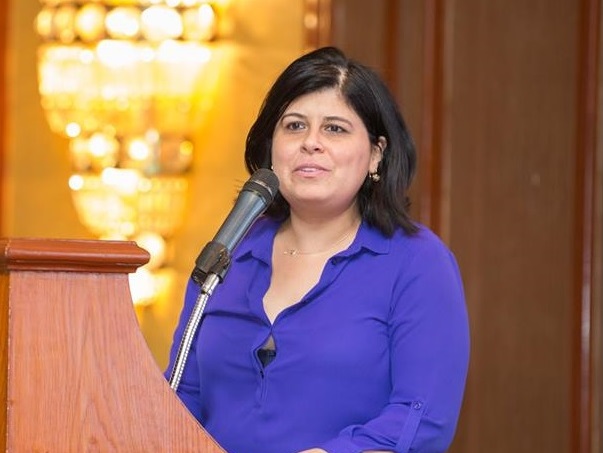COOP Champions
Badra Alawa, ILO DWT/CO-Cairo
COOP Champions features ILO colleagues from around the world working on cooperatives and other social and solidarity economy enterprises. It highlights their contributions, and shares highlights of their experiences, current work, and future aspirations.

In her current position, Badra has developed strong partnerships including with social partners to promote gender equality and decent work through training and knowledge-sharing as well as through the development of innovative approaches for policy reform, institutional strengthening and adoption of the most adapted economic organization models. Within this context, she has been particularly engaged in the improvement of the quantity and quality of women's work through cooperative development. In Upper Egypt, she worked on an integrated intervention at the scale of the Aswan and the Red Sea governorates. This included the creation and development of three cooperatives in the agriculture and handicrafts sectors providing them with technical and administrative support to facilitate their registration, enhance their production, marketing, management and governance and to help them develop linkages with political authorities and local civil society organizations. These cooperatives have emerged as successful examples of promotion of women's participation and leadership in remote rural areas either as women-only cooperatives for the handicraft cooperatives or as a mixed cooperative in the case of the agricultural cooperative. Badra had a chance to witness first-hand how these cooperatives allowed their women members improved bargaining and negotiating power. Through the cooperative the women members were able to say no to abusive arrangements with market intermediaries. The cooperatives also helped increase the interest of women members in engaging in local politics thus helping them move towards personal, social and economic empowerment.
By providing an effective solidarity-based mechanism, cooperatives are important platforms in addressing some of the current and future challenges of the labour market. Badra thinks cooperatives are particularly relevant to Egypt where the culture of shared interests and values, reciprocity and association are key to promoting women empowerment and gender equality in a context characterised by scarce decent employment opportunities and cultural constraints. The dual nature of cooperatives as enterprises and organizations allows women to address these challenges as members of a collective rather than as isolated individuals. Badra considers that cooperatives can be further tapped to include women in value chains on a more equal basis and to provide them improved access and control over resources and stronger involvement in decision-making and leadership positions. While cooperatives provide work opportunities it is important that these opportunities also come with access to safe and healthy working conditions and to social protection. To achieve impact and to play a role in the changing world of work, cooperatives need also to be brought to a suitable scale and provided with a viable legal and policy environment, financial means and good models.